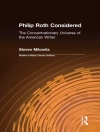A close examination of an important theme in Machaut’s works.
A milestone in Machaut studies and in late-medieval French literature in general. Machaut, already considered the seminal figure in late-medieval poetics and music, here comes across in these respects more clearly than ever. Kelly also further contextualises him within what we might call the authorial `apprenticeship tradition’ of Boethius, the
Roman de la Rose, Dante, and later Gower, Chaucer, and Christine de Pizan. The fruit of one of the field’s most distinguished scholars today. Nadia Margolis, Mount Holyoke College.
Guillaume de Machaut was celebrated in the later Middle Ages as a supreme poet and composer, and accordingly, his poetry was recommended as amodel for aspiring poets. In his
Voir Dit, Toute Belle, a young, aspiring poet, convinces the Machaut figure to mentor her. This volume examines Toute Belle as she masters Machaut’s dual arts of poetry and love, focusing onher successful apprenticeship in these arts; it also provides a thorough review of Machaut’s art of love and art of poetry in his dits and lyricsm, and the previous scholarship on these topics. It goes on to treat Machaut’s legacy among poets who, like Toute Belle, adapted his poetic craft in new and original ways. A concluding analysis of melodie identifies the synaesthetic pleasure that late medieval poets, including Machaut, offer their readers.
Douglas Kelly is Professor Emeritus at the University of Wisconsin, Madison.
Tabella dei contenuti
Introduction
Machaut’s Evolving Conception of Good Love
The Vicissitudes of Good Love: A Quandary?
The Scope of Toute Belle’s Art of Poetry
Examples and Their Reconfiguration
The Debate Mode
Machaut as Pre-Text: Imitation and Emulation
Melodie
Bibliography of Primary Sources
Bibliography of Secondary Studies
Circa l’autore
DOUGLAS KELLY is Emeritus Professor of French and Medieval Studies at the University of Wisconsin-Madison.












